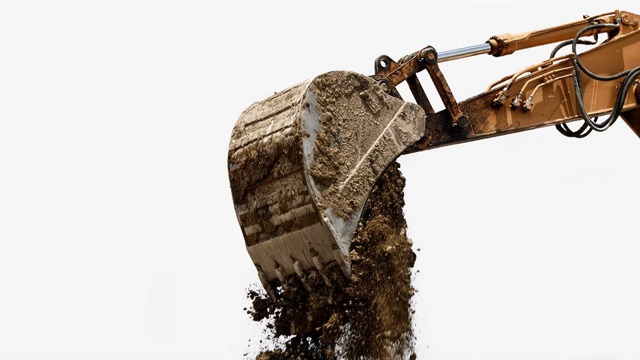New legislation tackling modern slavery and worker exploitation proposed: property and construction under the spotlight?
On 8 April, the Government announced that it is commencing consultation regarding a legislative response to issues of modern slavery and worker exploitation, forced labour and people trafficking. (Russell McVeagh's Insights announcement on the consultation can be viewed here).
"Modern slavery" means severe exploitation that a person cannot leave due to threats, violence, or deception. It includes forced labour, debt bondage, forced marriage, slavery, and human trafficking. Worker exploitation, for the purposes of the proposed legislation, includes "non-minor" breaches of employment standards in New Zealand.
Within the construction industry globally there is an increasing awareness of the prevalence of issues relating to modern slavery and worker exploitation. An estimated 18% of modern slavery victims internationally are within the construction industry, while 22% of forced labour victims are involved in the manufacture and production of raw materials.1 However, despite that growing awareness, concrete measures within the industry to combat these issues continue to lag behind other industries (for example, consumer product sectors such as retail clothing and groceries).
What is being proposed?
Developed by the Ministry of Business, Innovation and Employment (MBIE) and the Modern Slavery Leadership Advisory Group, chaired by Rob Fyfe, the legislative proposals would adopt a disclosure and due diligence approach which places obligations on all types of entities, regardless of size. This could include companies, sole traders, partnerships, state sector organisations, local government, charitable entities, trusts, incorporated societies, and Māori trusts and incorporations. Under the proposed legislative reform:
-
All types of entities would be required to take reasonable and proportionate action if they become aware of modern slavery in their international operations and supply chains, or modern slavery or worker exploitation in their domestic operations and supply chains.
-
Parent or holding companies of, or companies that have significant contractual control over, a New Zealand entity would be required to undertake specified "due diligence" steps, to prevent, mitigate and remedy modern slavery and worker exploitation.
-
Medium ($20-50 million annual revenue) and large ($50 million and above annual revenue) entities would also be required to disclose the steps they are taking to address modern slavery in their international operations and supply chains, and modern slavery and worker exploitation in their domestic operations and supply chains.
-
Large entities would additionally be required to undertake due diligence to prevent, mitigate and remedy modern slavery in their international operations and supply chains, and modern slavery and worker exploitation in their domestic operations and supply chains.
What are the risk areas in the property and construction industries?
Various intersecting structural and contextual risk factors contribute to the elevated risk of modern slavery and worker exploitation within the operations and supply chains in the property and construction industries. These factors include the high demand for low-skilled labour force, poor visibility over long and complex supply chains, and low-tier suppliers operating in high-risk geographies.
Some common modern slavery practices in property and construction supply chains include:
-
Forced or unpaid work;
-
Unsafe conditions;
-
Debt bonded and child labour;
-
Inadequate accommodation;
-
Passport confiscation;
-
Vulnerability of workers on temporary visas; and
-
Human trafficking.
Can industry-specific guidance assist?
Whatever the final legislative product looks like, it will be important that the Government produces specific guidance for industry groups. In Australia, an industry-specific guide for the property and construction industry has been developed to help Australian businesses combat modern slavery and comply with the Australian modern slavery regime. The Property and Construction Guide records that:2
-
The structure of property and construction tendering and procurement processes contributes to the sector’s competitiveness, but also elevates the risk of modern slavery.
-
Part of identifying a company’s risks of modern slavery includes considering how the business structure and timing of project milestones may be creating downward pressure on supply chains and business relationships, in a way that gives rise to labour exploitation and modern slavery.
-
The long and multi-tiered supply chains that typify the property and construction sector often mean that there is little visibility and control over the recruitment and employment practices of suppliers and subcontractors.
-
Property companies specialising in operations and maintenance are known to face particular pressures to reduce operational expenditure, which often leads them to choose the lowest cost options in services such as security and cleaning. These services are at high risk of modern slavery and worker exploitation due to a confluence of high-risk factors.
When it comes to tendering and contracting, a number of processes could be brought into common practice to support the property and construction industry in combatting modern slavery and worker exploitation. Incorporating obligations regarding modern slavery into contracts can be an effective way for industry entities to hold each other to account. Contractual obligations might relate to:
-
Both parties' compliance with modern slavery laws;
-
The undertaking of risk assessments, including a review of supply chains;
-
The maintenance of a training system for those responsible for managing procurement, to support them in being able to identify, report, and prevent modern slavery;
-
Maintenance of records which describe in detail the contractor's operations and supply chain; and
-
Taking action where modern slavery is identified within a supply chain.
Submissions due 7 June
As Russell McVeagh prepares its submission on the current consultation, we welcome further engagement with the construction industry on how we can best assist the Government, the property and construction industries, and other industry bodies in our collective responsibilities in the global fight against modern slavery and worker exploitation.
Submissions on the current consultation close on 7 June 2022.



